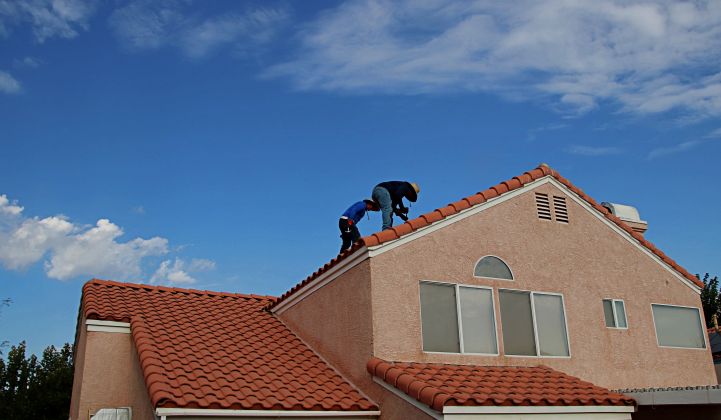Startup Aurora Solar raised $50 million in its latest funding round, a significant chunk of change for the solar software space.
Investment firm Iconiq Capital led the Series B round. Energize VC and Pear Ventures, funders that pitched in on Aurora’s Series A, supplemented Iconiq’s funding, along with real-estate-focused venture capital firm Fifth Wall.
Many of the solar industry’s biggest names, such as SunPower and Vivint Solar, use Aurora’s software to design rooftop solar systems. Remote imaging, which was already a standard for many solar projects, become even more integral during the coronavirus pandemic when stay-at-home orders slowed inspections and permitting. In recent months, residential solar companies have shifted more of their work online.
“The pandemic has accelerated trends toward remote processes,” said Aurora co-founder Sam Adeyemo in a statement.
Unlike some solar companies, Aurora has seen an uptick in business during the pandemic. Partners designed 1 million projects with Aurora’s remote-modeling software in the six months spanning April to October, a rate that outpaces past system designs, the company told Greentech Media. That brings the total number of systems designed with the software to 4 million as of last month.
“Accurate system site design with robust shading analysis…is so important when you can’t visit people's homes for site surveys,” said Wood Mackenzie solar analyst Molly Cox. “More streamlined design processes in general just help with the overall efforts to reduce soft costs for both residential and commercial and industrial [solar].”
In Q2 2020, soft costs, which include labor and design, accounted for the majority of average per-watt installation prices for residential solar, according to WoodMac.
The latest funding round brings San Francisco-based Aurora’s total investments to more than $70 million. Those funds outpace the money raised by other solar design software companies, many of which are located in California’s Bay Area. San Francisco’s Folsom Labs, the designer of HelioScope, has publicly announced about $1 million in funding. Sight, located in the same city, has raised $5 million, according to Crunchbase.
Aurora will spend the money on enhancing remote sales and site audits, expanding services tied to its software, and adding "hundreds of people across the organization, with focus on engineering, product and customer success," said Adeyemo. Last year the company began working with Google, incorporating the tech giant's data into its software and increasing the accuracy of designs.
After a flat 2020, Wood Mackenzie expects the residential solar market to continue growth through 2021 as the federal Investment Tax Credit follows its current step-down schedule.




